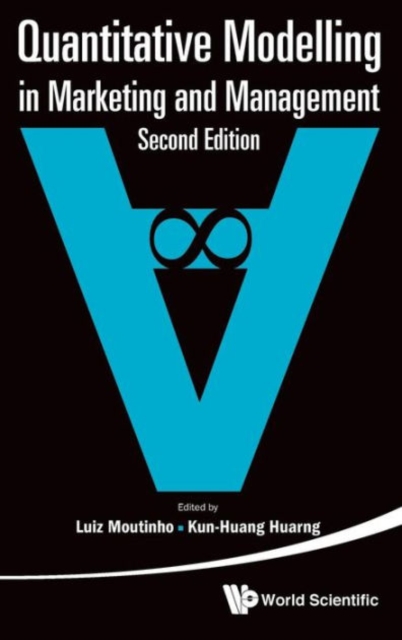
Quantitative Modelling In Marketing And Management Hardback
Edited by Luiz (Dublin City Univ, Ireland) Moutinho, Kun-huang (Feng Chia Univ, Taiwan) Huarng
Hardback
Description
The field of marketing and management has undergone immense changes over the past decade.
These dynamic changes are driving an increasing need for data analysis using quantitative modelling.
Problem solving using the quantitative approach and other models has always been a hot topic in the fields of marketing and management.
Quantitative modelling seems admirably suited to help managers in their strategic decision making on operations management issues.
In social sciences, quantitative research refers to the systematic empirical investigation of social phenomena via statistical, mathematical or computational techniques.The first edition of 'Quantitative Modelling in Marketing and Management' focused on the description and applications of many quantitative modelling approaches applied to marketing and management.
The topics ranged from fuzzy logic and logical discriminant models to growth models and k-clique models.The second edition follows the thread of the first one by covering a myriad of techniques and applications in the areas of statistical, computer, mathematical as well as other novel nomothetic methods.
It greatly reinforces the areas of computer, mathematical and other modeling tools that are designed to bring a level of awareness and knowledge among academics and researchers in marketing and management, so that there is an increase in the application of these new approaches that will be embedded in future scholarly output.
Information
-
Available to Order - This title is available to order, with delivery expected within 2 weeks
- Format:Hardback
- Pages:568 pages
- Publisher:World Scientific Publishing Co Pte Ltd
- Publication Date:19/11/2015
- Category:
- ISBN:9789814696340
Information
-
Available to Order - This title is available to order, with delivery expected within 2 weeks
- Format:Hardback
- Pages:568 pages
- Publisher:World Scientific Publishing Co Pte Ltd
- Publication Date:19/11/2015
- Category:
- ISBN:9789814696340






